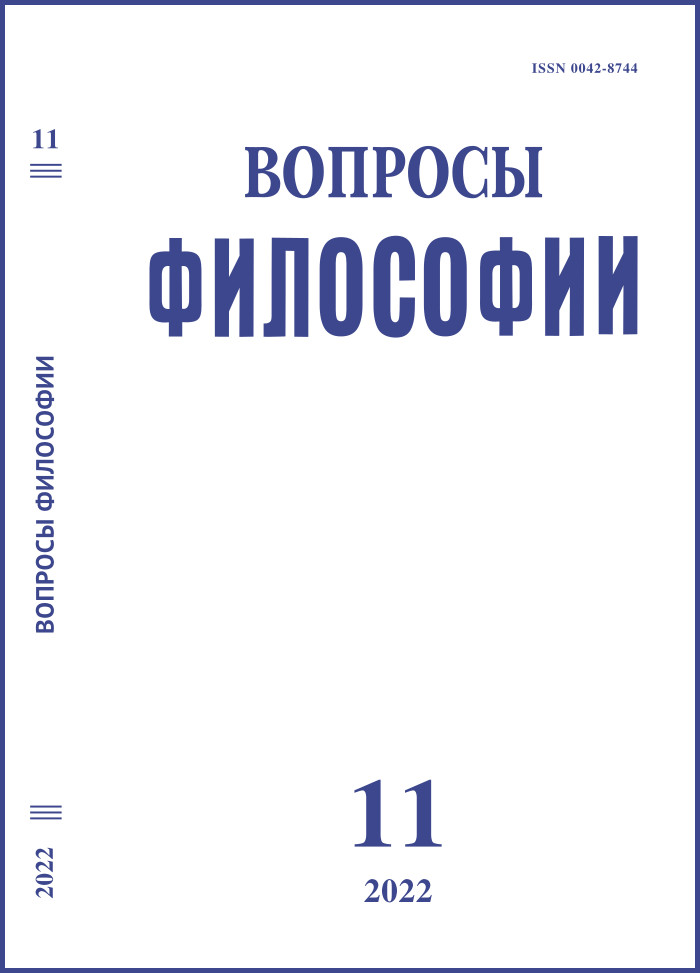Discourse “Pax Yalta” (on the Question of the Space-Time Model of Power by M. Foucault)
DOI:
https://doi.org/10.21146/0042-8744-2022-11-122-129Keywords:
M. Foucault, power, history, temporality, historicity, discourse, episteme, chronotope of power, topos, “Pax Yalta”.Abstract
Subject of the article: spatial-temporal characteristics of power in the philosophical theory of M. Foucault. The main methodological strategy of the study: the analysis of the Yalta world in the framework of the Fukian space-time theory of power. However, the theoretical developments of M. Foucault are used to study the features of the Yalta world not as a final solution to the problem. The realities of the Yalta world serve as a platform for conducting an experiment aimed at finding out the epistemological possibilities of the classical Fukian theory of power. For a better understanding of the space-time structures of power that M. Foucault uses (but rarely reveals and describes in detail), the concepts of “chronotopicity of power” and “topochronicity of power” are introduced. The conclusion is made about total processality as the ontic basis of power in M. Foucault. This gives Pax Yalta the status of a third between the episteme of power and the dispositive of power. In a series of changes of the Fukian chronotopes of power (“Shepherd”, “Policeman”) Pax Yalta has a special character. From the point of view of the topos, the Yalta world is a fact of the developed chronotope “Policeman” characteristic of the New Time. But from the point of view of temporality, the Yalta Myrrh is a fact that makes it related to the Middle Ages (the chronotope “Shepherd”). The gap between the topos and the chronos of power explains many of the paradoxes of the modern world and international relations in particular. And the ontic processality of the power says that the revealed imbalance is characteristic of the period of formation of a new system of power, possibly in the format of a higher synthesis, which will be carried out outside of public international law. Its basis is a sense (perception) of the correctness of a certain model of time and space of power, which will end (and not begin) with international legal procedures.
Downloads
Published
Versions
- 2025-02-07 (2)
- 2022-11-30 (1)

